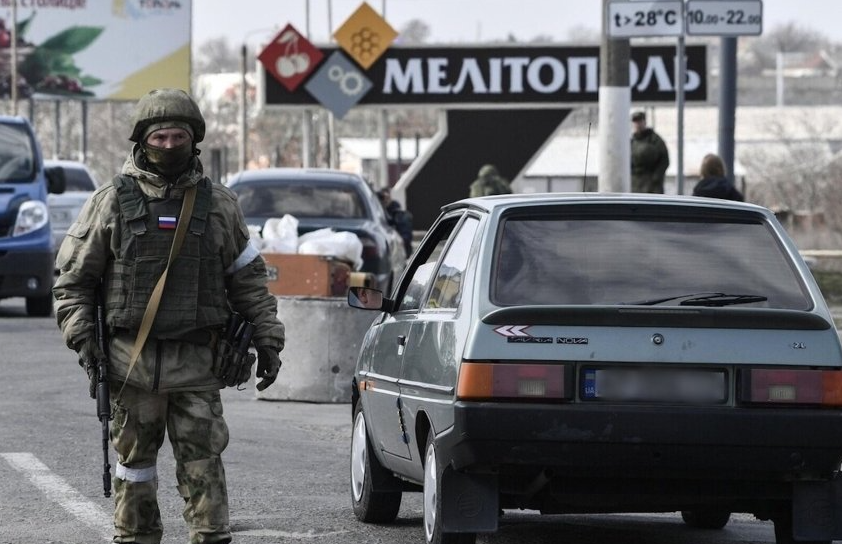Ukrainians banned from their homes as ‘undesirable elements’ by Russian invader

Since October 2023, Russia has forced Ukrainians to return to their homes in occupied parts of Ukraine via the Sheremetyevo airport in Moscow. According to RIA-Melitopol, Russia’s so-called ‘filtration’ measures against Ukrainians have become ever more draconian, with representatives of the aggressor state making no secret of their distrust of Ukrainians whom they view as ‘unreliable’.
One of the many methods that the aggressor state is using to force Ukrainians on occupied territory to take Russian citizenship is the threat that they will otherwise lose their homes. Those who left occupied territory are in particular danger of such open plunder, but it appears to be a matter of time before any Ukrainian unwilling to ‘re-register’ their Ukrainian homes under Russian legislation will face losing them.
In late November 2023, RIA-Melitopol spoke with a Ukrainian from Melitopol [Zaporizhzhia oblast] who had, with her husband, tried to return to the occupied city, in order to formally establish the property rights for her home. The couple arrived at Sheremetyevo airport in Moscow from a European country and were not anticipating any major difficulty during Russia’s so-called ‘filtration’ when people are interrogated for hours on end about their views; have their phones and other gadgets scrutinized for pro-Ukrainian and / or anti-war material and where men get stripped and have tattoos scrutinized.
It is unclear what it was that the FSB did not like, but after many hours of interrogation, they declared her an ‘undesirable individual’, or persona non grata and banned her from entering Russia and all temporarily occupied Ukrainian territory for ten years. Her husband was allowed through, however the woman is now, with cause, anxious for his safety, as well as over her property which the invaders may try to appropriate as ‘ownerless’.
Russia’s methods have become considerably more brazen since its full-scale invasion of Ukraine, however they cannot be called new. From immediately after its invasion and annexation of Crimea, the regime began banning Crimean Tatar leaders and other Ukrainians from their native Crimea. It later introduced restrictions on Ukrainians owning property in almost all parts of the occupied peninsula.
Since 1 February 2024, Russia has intensified its ‘filtration’ measures against Ukrainians at Sheremetyevo. Residents have told RIA Melitopol that it is since then that the FSB have stopped only targeting those with Ukrainian passports. They now subject people from Melitopol who have taken on Russian citizenship to the same gruelling interrogations and ‘checks’. The publication reported that very often the majority of those trying to get to occupied territory are blocked, with no explanation provided. One woman from Melitopol reported that she had been tormented by the border guard, but was allowed through, however seven other people from Melitopol were refused. The Russians can object to a 5-year-old photo or find a contact in the person’s phone ‘suspicious’. One man wrote on social media that his wife had been blocked because of a couple of phrases in a private conversation which merely demonstrated that she loved Ukraine. One person who had been waiting for six hours asked why there were such measures; and was told: “You lot from the new territory [i.e. illegally occupied parts of Ukraine] are unreliable, and we’ve had such a decree since 1 February.”
Rumours were rife before Russia’s fake presidential elections that the situation would become worse, that all would be blocked entry once the ‘elections’ were over. In fact, it sounds as though the situation may have become a little easier, with people allowed through more often. The ‘filtration’ checks still last very many hours, with telephones, etc. taken away and scrutinized. One person told the publication that the FSB had found things she had totally forgotten about. The situation seems no better, nor any more predictable, for people trying to get to occupied parts of Donetsk or Luhansk oblasts.





